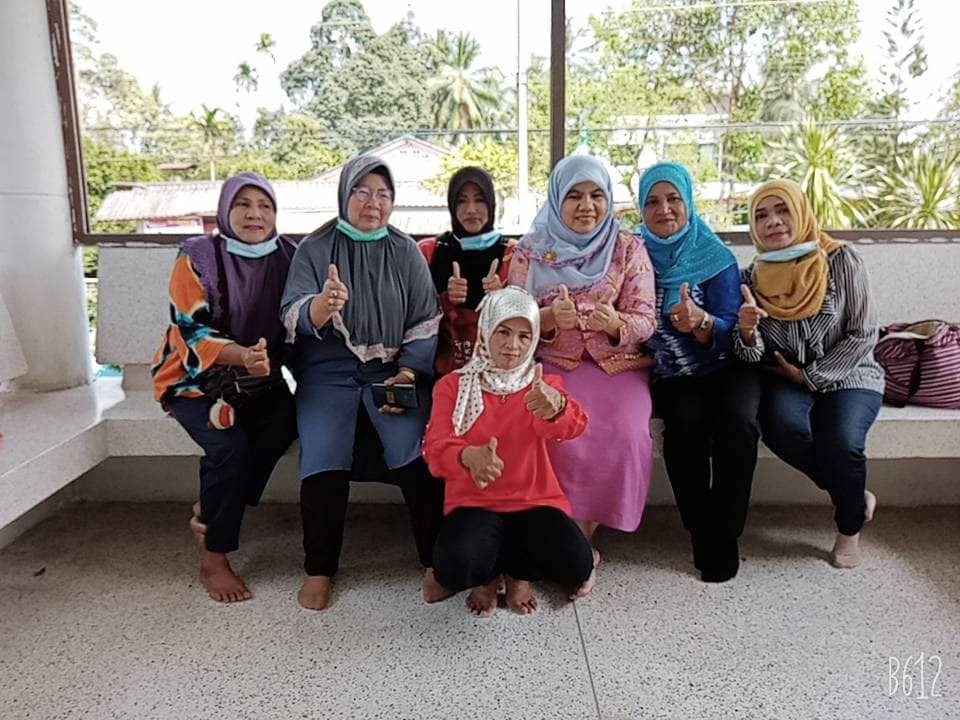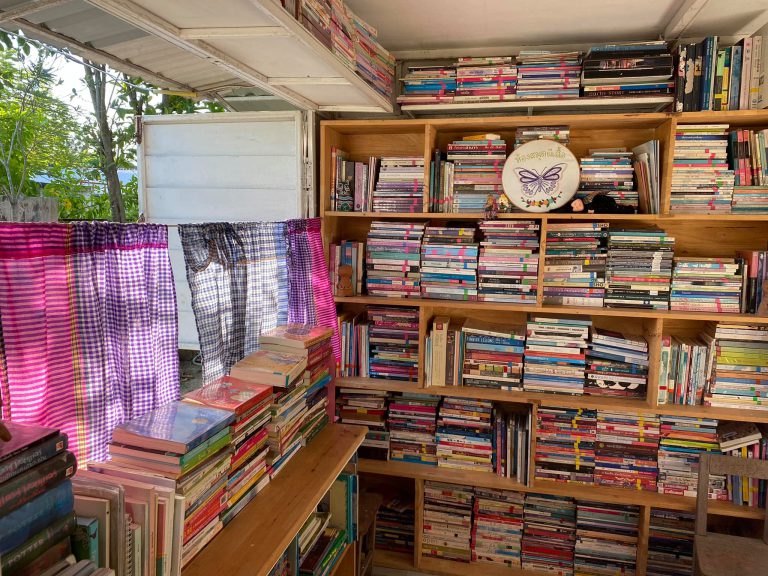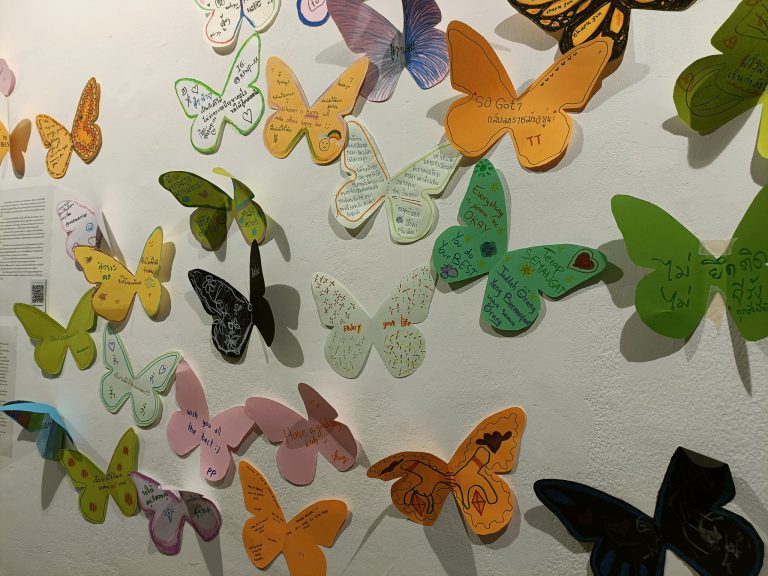It is commonly known that medical personnel have quite a lot of workload. In addition, for people who live in remote communities, traveling to see a doctor or hospital is difficult. Having a health care system which people in the community can take care of themselves, though it’s just basic care, is good. Because there are 2 benefits: 1) reducing wasted time and travel expenses; and 2) reducing the workload of medical personnel.
Ms. Waranya Jitrbantad realized the importance of educating the community on self-care, minimizing dependence on the public health system, by expanding knowledge and compassion to communities in Nakhon Si Thammarat Province. The starting point to develop Compassionate Community arised from being an educational and medical personnel of Boromarajonanee College of Nursing Nakhon Si Thammarat and also belonging to the community health nurse group, who is responsible for academic service in health care to the community. She also holds a Master’s degree in Social Sciences, Medicine and Public health. She is interested in conducting research with the community more than the hospital. Therefore, she chose the Nakian community, which did not have any nursing profession, as the starting point to drive the work. Because it answered the needs of education and health care planning for underprivileged patients such as the disabled, bedridden patients, the elderly, etc.
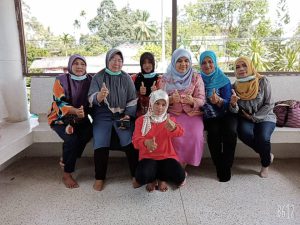
Ms. Waranya started with Village Health Volunteers development for them to have knowledge in caring for patients, assess the initial condition of the patient, from measuring the pulse, measuring blood pressure, punching sugar, physical rehabilitation, bedsore prevention, bandage in different areas, including feeding through the tube, bathing and physical cleaning on bed and excretion. They learn through the patients in the community themselves, which will make the Village Health Volunteers and patients feel more confidence in care-taking.
Besides, providing nursing knowledge, Compassionate Community also promotes coordination with local organizations about the rights that the patient will receives. When visiting patients in the community, the visiting team comprise of not only health care team, but also village headmen or sub-district headmen to help assess the environment around the patients whether it is suitable for living. This enables everyone in the community to participate in improving the quality of life of patients, creating the development of solid social network. Working together, she could feel that people in the community cooperated to take care of physical and mental health, relationships, and began to pay more attention to “health promotion”.
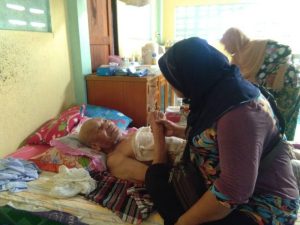
As the patient care activities have run for a while, there are people, who are not Village Health Volunteers, interested to participate in the activities. Ms. Waranya then consulted the Peaceful Death Group about making a Compassionate Community in Nakian. She started recruiting 20 volunteers across ages, focusing activities around visiting, talking and offering encouragement, not a health providing service. They organize training on listening skill and visiting process, as well as assign young volunteer pair up with senior volunteer. They can select which patients to visit by themselves, and then summarize what have they learned after the trip.
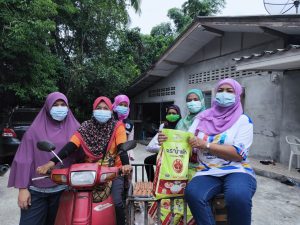
Ms. Waranya has utilized My gift of grace and Care Club (card games to create meaningful conversations about death, dying and life) in the Compassionate Community. She chose a combination of cards that address the challenges and can be used to talk to people in the circle. Given there are volunteers of various ages, she also uses My gift of grace cards to talk to the nursing students she teaches. She found that the students had more delicate mental development and communicate their kindness through actions. Besides, Nakorn Si Thammarat Compassionate Community also created “sharing market” to donate the income to buy supplies for bedridden patients.
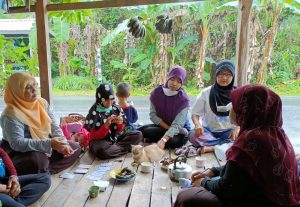
However, community self-care can only be achieved at basic level for patients with stable conditions. If there is serious illness, it will be the responsibility of the hospital and medical personnel directly. Ms. Waranya therefore saw the opportunity to consider and involve medical personnel to take care of more people in the community and make the hospital to pay more attention to the mental health of patients and relatives. By creating a good referral system between the community and the sub-district health promotion hospital, there must be a strong health team who can help support patients’ relatives in the early stages, before letting relatives take care of them. The kinship will help strengthen the health system in the community.
For Ms. Waranya, helping and supporting others makes her feel fully satisfied. Her personal needs shift to giving to others. The more she does, the happier she is, hence she wants to do it again, and also spread her compassion to other people. Ms. Waranya’s suggestion to those who want to create a compassionate community is that you may start by giving yourselves an opportunity to listen or train on such subjects. Then try doing it with someone close to you first from a small point that you are good at. Once you have certain experiences, then you may expand or extend. Nakian, Nakhon Si Thammarat Compassionate Community is happy to share advice, experiences from working in the compassionate community. You may contact her via Facebook : Nakhon Si Thammarat Compassionate Community (https://www.facebook.com/WaranyaJitbantad) or Facebook Waranya Jitbantad
Release: 23 May 2021
Author: Surapin Yusawang
Photo reference: Facebook page of Nakhon Si Thammarat Compassionate Community
